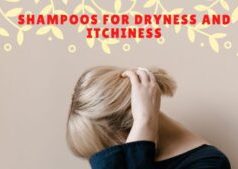Have You Been Using Henna Without Knowing the side effects of using henna on Hair? Shell in this article, I will take some time to shade more light on the effects of using Henna on hair. I suggest you keep reading for better knowledge.
What Is Henna
Henna is a natural dye derived from the leaves of the henna plant, scientifically known as Lawsonia inermis. It has been used for centuries as a cosmetic and medicinal plant, primarily in regions like North Africa, South Asia, and the Middle East. The leaves of the henna plant are dried, powdered, and then mixed with liquid (such as water or lemon juice) to create a paste. This paste, when applied to the hair or skin, leaves a reddish or orange stain.
Why Is Henna Used On Hair
Henna is commonly used on hair for its natural dyeing properties. When applied to the hair, henna can impart a reddish-brown color, depending on the natural color of the hair and the quality of the henna used. It acts as a semi-permanent dye, coating the hair shaft and creating a protective layer. Henna has also been traditionally used for its cooling and soothing properties on the scalp.
Also Read: Side Effects Of Vaseline on Hair
Is Henna Good For Your Hair?
Henna is often considered beneficial for hair for some reasons, it’s worth noting that henna is primarily effective for dyeing hair shades of red or reddish-brown. If you are looking for other colors or more dramatic color changes, other hair dyes or treatments may be more suitable.
Side Effects of Using Henna On Hair
Before you Think of Using Henna? Here Are some major side effects you should consider:
1. Allergic Reactions and Sensitization
Some individuals may develop allergic reactions to henna, especially if they have a pre-existing allergy to plants in the same botanical family, such as ragweed or chrysanthemums. Allergic reactions can manifest as itching, redness, swelling, and even hives. In rare cases, severe allergic reactions known as anaphylaxis can occur, which require immediate medical attention. Additionally, repeated use of henna can sensitize the skin over time, leading to an increased risk of allergic reactions with subsequent applications.
Also Read: Side effects Of Onions Juice For Hair Growth
2. Scalp Irritation and Itching:
Henna paste can sometimes cause irritation and itching on the scalp. This can be due to various factors such as the presence of natural plant compounds in henna, the drying effect of henna on the scalp, or an allergic reaction. If you experience scalp irritation or itching after applying henna, it is advisable to discontinue its use and consult a dermatologist if the symptoms persist.
3. Dryness and Frizziness
Henna has a drying effect on the hair, which can lead to dryness and frizziness, particularly if the hair is already dry or damaged. This occurs because henna can strip the hair of its natural oils. To mitigate this, it is recommended to use moisturizing hair products and conditioners after applying henna to help restore hydration to the hair.
4. Hair Breakage and Damage
Henna has a strengthening effect on the hair, but if not used properly or if left on for too long, it can lead to hair breakage and damage. This is more likely to occur if the hair is already weak or over-processed. It is important to follow the instructions carefully and not leave henna on the hair for longer than recommended.
5. Color Inconsistency and Unevenness
Obtaining a consistent and even color with henna can be challenging, especially when using different batches of henna or applying it to hair that has been previously treated with chemical dyes. Factors such as the quality and composition of the henna, the natural color of the hair, and the application technique can all contribute to color inconsistencies and unevenness.
6. Staining of Skin and Clothing:
Henna has a staining property, and if it comes into contact with the skin or clothing, it can leave behind temporary orange or reddish stains. It is essential to protect the skin around the hairline and wear old clothing or use protective coverings to prevent staining.
7. Difficulty in Removing Henna:
Henna can be difficult to remove from the hair, particularly if multiple layers have been applied or if it has been left on for an extended period. Some people may find it challenging to completely remove henna from their hair, and it may require multiple washes or the use of clarifying shampoos.
8. Thinning of Hair and Hair Loss
While henna is generally considered safe, some individuals have reported hair thinning or hair loss after using henna. This can occur if henna is used excessively or if the individual has an underlying hair condition. It’s essential to pay attention to how your hair reacts to henna and discontinue its use if you notice excessive hair thinning or loss.
9. Interference with Chemical Treatments
Henna can interfere with subsequent chemical treatments, such as hair dyes or relaxers. The natural pigments in henna can react with certain chemicals, leading to unpredictable results or undesired color changes. It is generally recommended to wait at least several weeks between using henna and undergoing chemical treatments to allow the henna to fade and the hair to recover. Consulting a professional hairstylist is advisable to ensure compatibility between henna and any chemical treatments.
Also Read: side effects of Using Clove Water For hair Growth
How To properly apply henna to your hair, follow these steps:
- Prepare the henna paste: Start by mixing henna powder with a liquid of your choice, such as water, lemon juice, or brewed black tea. Mix it until you achieve a smooth, thick paste. Let the paste sit for a few hours or overnight to allow the dye to release.
- Protect your skin: Apply a layer of petroleum jelly or a thick cream around your hairline, ears, and neck to prevent the henna from staining your skin.
- Section your hair: Divide your hair into manageable sections. Use hair clips or elastics to secure each section.
- Apply the henna paste: Working with one section at a time, take a small amount of henna paste and apply it to your hair, starting from the roots and working your way down to the ends. Ensure that the hair is thoroughly coated with the paste. Repeat this process for each section of your hair.
- Massage the paste into your hair: Once you have applied the henna paste to all sections, gently massage it into your hair to ensure even distribution.
- Cover and wait: Once your hair is fully coated, gather it up and cover it with a shower cap or plastic wrap to prevent the henna from drying out. Leave the henna on your hair for the recommended amount of time, usually around 2-6 hours, depending on the desired color intensity.
- Rinse and wash: After the desired processing time, rinse your hair thoroughly with warm water. Avoid using shampoo or conditioner at this stage, as they can interfere with the henna dyeing process. You can gently massage your scalp and hair to remove the henna paste.
- Allow the color to develop: Henna takes some time to fully develop its color. Avoid washing your hair with shampoo for at least 24-48 hours after rinsing out the henna. During this time, the color will deepen and become more vibrant.
Conclusion on Side Effects of Using Henna on Hair
Henna is a natural dye derived from the henna plant and is used for coloring hair. It offers a semi-permanent color that can range from reddish-brown to vibrant red, depending on the natural color of the hair and the quality of the henna used. Henna is known for its conditioning and strengthening properties, making it beneficial for hair health.
While henna is generally considered safe, it’s important to perform a patch test before applying it to your entire hair to check for any adverse reactions. It’s also essential to follow the instructions provided with the henna product and conduct thorough research to ensure proper application and achieve the desired results.
FAQs:
1. Can henna be used on chemically treated or colored hair?
Yes, henna can be used on chemically treated or colored hair, but it’s important to wait for several weeks after the chemical treatment before applying henna. This allows the hair to recover and reduces the risk of color interference.
2. How long does henna color last on the hair?
Henna color typically lasts for about 4-6 weeks, gradually fading with each wash. However, the duration may vary depending on factors such as the quality of the henna, hair care routine, and the individual’s hair type.
3. Can henna be used on gray or white hair?
Yes, henna can be used on gray or white hair. Henna tends to give a vibrant red color to gray or white hair, providing a natural-looking result. It’s important to note that henna may give a different shade on gray hair compared to other hair colors.
4. Can henna be used by pregnant or breastfeeding women?
While henna is generally considered safe, it’s recommended to consult with a healthcare professional before using henna






